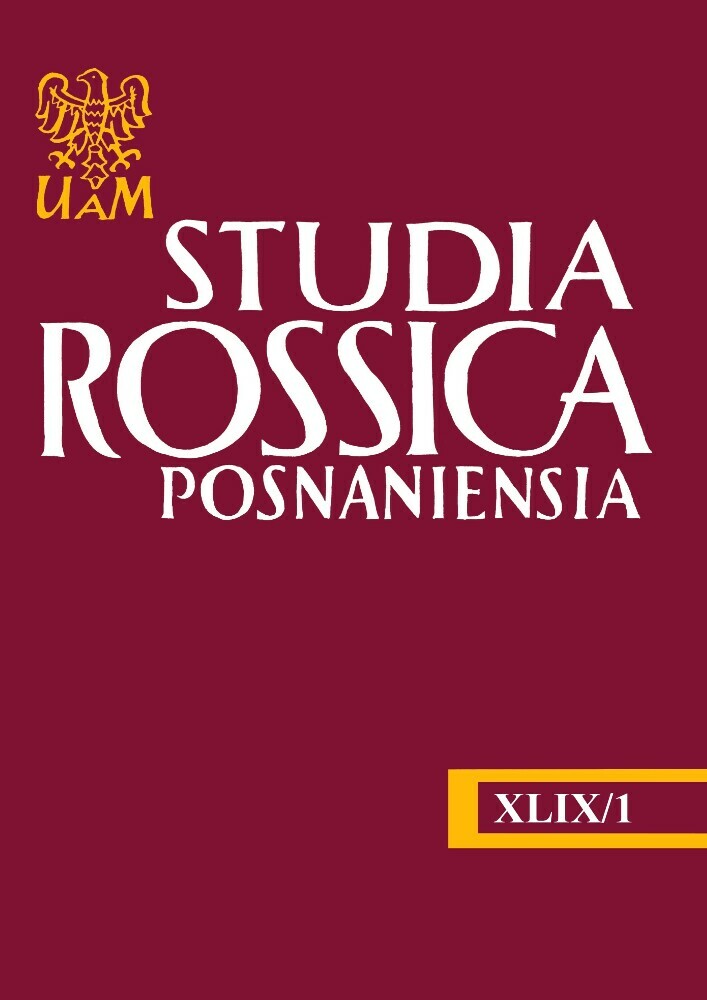Abstract
The release of the television series Chernobyl (HBO, Sky Atlantic 2019) drew renewed attention to the tragedy, its locations, and the affected population, generating new productions in Russia, such as the film Chernobyl: Abyss (Danila Kozlovskij, 2021), explicitly made in response to the Western series, signalling a desire to re-appropriate the narrative of the disaster and its territories. Indeed, a recurrent characteristic of the film and television productions of the countries most affected by the 1986 nuclear disaster (Ukraine, Belarus, and Russia) has been the representation of the land and the inhabitants’ relationship with it (Lindbladh 2019). This is also a central theme in Svetlana Alexievich’s renowned 1997 work Voices from Chernobyl: Chronicle of the future, whose stories inspired some episodes of the Anglo-American series. This article analyzes the representation of the relationship between the inhabitants of the Chornobyl/Chernobyl Exclusion Zone and their homeland in film and television productions dedicated to the nuclear disaster, beginning with Eastern European films made in the early 1990s, moving on to the representation in the Western series, and culminating with an analysis of Kozlovskij’s Chernobyl: Abyss. Features considered include the development of romantic narratives within the contaminated zone, the visual representation of radiation, and the depiction of the local institutions’ response to the disaster.
References
Aleksievič, Svetlana. Preghiera per Černobyl’. Trans. by Sergio Rapetti. Rome, Edizioni e/o, 2012.
Arndt, Melanie. “From nuclear to ‘human security’? Prerequisites and motives for the German Chernobyl commitment in Belarus”. Historical Social Research, 35 (4) (134), 2010, pp. 289–308.
Arndt, Melanie. “Memories, commemorations, and representations of Chernobyl: Introduction”. Anthropology of East Europe Review, 30 (1), 2012, pp. 1–12.
Berdyaev, Nikolai. The Russian Idea. London, Geoffrey Bles, 1947.
Braithwaite, Rodric. “Chernobyl: A «normal» accident?”. Survival, 61 (5), 2019, pp. 149–158. DOI: https://doi.org/10.1080/00396338.2019.1662152
Briukhovetska, Olga. “«Nuclear belonging»: «Chernobyl» in Belarusian, Ukrainian (and Russian) films”. Contested interpretations of the past in Polish, Russian, and Ukrainian film. Ed. Sander Brouwer. Leiden, Brill, 2016, pp. 95–121. DOI: https://doi.org/10.1163/9789004311749_008
Burmistrov, Eduard, Pavel Lobkov. Naš otvet HBO: smotrim fil’m Danily Kozlovskogo “Černobyl’” vmeste s likvidatorom avarii na AES. TV Rain, 16 April 2021. Web. 23.01.2023. https://tvrain.tv/teleshow/here_and_now/nash_otvet_hbo-528296/.
Gaponova, Ûliâ. Naš otvet “Černobylû” ot HBO. 25 July 2019. Web. 23.01.2023. https://otr-online.ru/blogs/blog-internet-redakcii-otr/nash-otvet-chernobylyu-ot-hbo-855.html.
Gessen, Masha. “What HBO’s ‘Chernobyl’ got right, and what it got terribly wrong”. The New Yorker, 4 June 2019. Web. 20.04.2023. https://www.newyorker.com/news/our-columnists/whathbos-chernobyl-got-right-and-what-it-got-terribly-wrong.
IMDb Charts “Top rated TV shows” – Top 250 as rated by IMDb users. Web. 21.04.2023. https://www.imdb.com/chart/toptv/.
IMDb Top 10 new TV shows of 2019. Web. 18.01.2024. https://m.imdb.com/list/ls097791776/. International Atomic Energy Agency (IAEA). Web. 24.01.2024. https://www.iaea.org/newscenter/focus/chernobyl/faqs.
“Kommunisty Rossii’ potrebovali zapretitʹ serial «Černobyl»”. Radio Svoboda, 13 June 2019. Web. 20.04.2023. https://www.svoboda.org/a/29997397.html.
Lindbladh, Johanna. “Coming to terms with the Soviet myth of heroism twenty-five years after the Chernobyl’ nuclear disaster: An interpretation of Aleksandr Mindadze’s existential action movie Innocent Saturday”. Anthropology of East Europe Review, 30 (1), 2012, pp. 113–126.
Lindbladh, Johanna. “Representations of the Chernobyl catastrophe in Soviet and post-Soviet cinema: The narratives of Apocalypse”. Studies in Eastern European Cinema, 103, 2019, pp. 240–256. DOI: https://doi.org/10.1080/2040350X.2019.1608628
Romanova, Olga. “Koncepty «socialističeskoe» i «nacionalʹnoe» v pozdne- i postsovetskom belarusskom kinematografe”. The International Congress of Belarusian Studies. Kaunas, 2014, pp. 456–458.
Stulov, Iurii. “Coming out of the margins: Belarusan cinema in the 1990s”. Canadian Slavonic Papers, 42 (1–2), 2000, pp. 7–23. rg.ru/2019/06/19/reg-cfo/danila-kozlovskij-ne-boiussravnenij-s-chernobylem-hbo.html. DOI: https://doi.org/10.1080/00085006.2000.11092234
Zhukova, Ekatherina. “Foreign aid and identity after the Chernobyl nuclear disaster: How Belarus shapes relations with Germany, Europe, Russia, and Japan”. Cooperation and Conflict, 52 (4), 2017, pp. 485–501. DOI: https://doi.org/10.1177/0010836717710529
License
Copyright (c) 2024 Claudia Fiorito

This work is licensed under a Creative Commons Attribution-NonCommercial-ShareAlike 4.0 International License.

